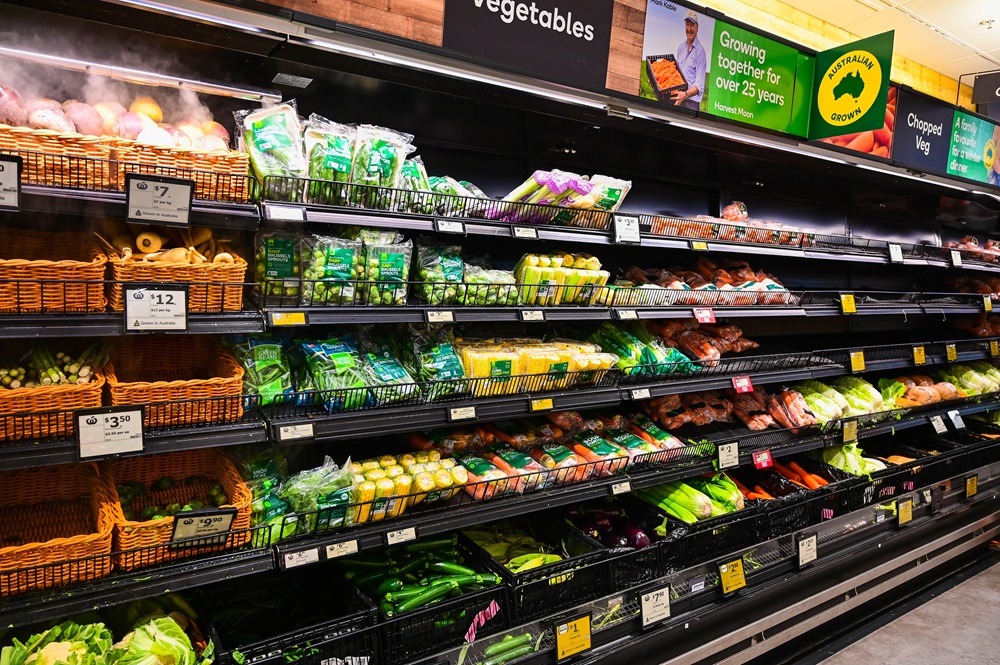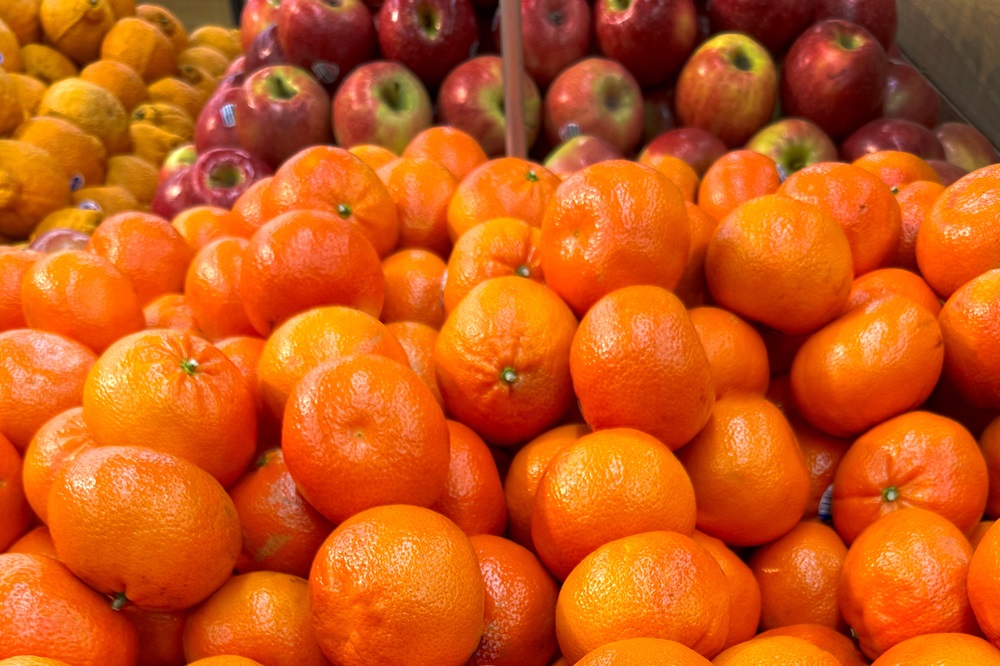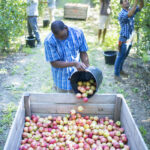Seven Students. 85 Hectares. Three Years. 170 tonnes of wheat. A cropping project like no…
Supermarket price inquiries put farmers in the spotlight�

The cost-of-living crisis facing Australian families and supermarket price inquiries was the focus of a recent Farm Writers event in Sydney, where ACCC deputy chair Mick Keogh and Victorian Farmers� Federation President Emma Germano discussed whether supermarkets were the ones to blame.�
As the Australian Competition and Consumer Commission (ACCC) continues to delve into its 12-month inquiry into supermarket pricing, farmers find themselves at the centre of a heated debate about fairness, competition, and the future of our food system. With allegations of price gouging and concerns over the cost of groceries, the spotlight is on the complex relationship between supermarkets, suppliers, and consumers.��
In January 2024, Prime Minister Anthony Albanese announced an ACCC inquiry into supermarket prices, responding to growing concerns over the cost of groceries. This investigation aimed to examine the relationship between wholesale, farmgate, and retail prices, as well as barriers to competition in the sector. Advocacy group Choice also received $1.1 million to “provide clear regular information on prices across a basket of goods”.
The ACCC used compulsory information-gathering powers on supermarkets such as Aldi, Coles and Woolworths. The investigation included:
- barriers to greater competition in the sector�
- the relationship between wholesale, farmgate and retail prices�
- the challenge for other companies to enter the market�
- the impacts online shopping, loyalty programs and changes in technology have on competition�

The inquiry began in March with an issues paper for stakeholder submissions, along with an online consumer survey. ACCC deputy chair Mick Keogh told a recent Farm Writers event the response to the survey exceeded expectations.�
�We received the highest number of responses we�ve ever received for a consumer survey, with 22,000 respondents. So it really highlighted the significance they see in the role of supermarkets in their lives,� Mr Keogh said.
�The inquiry is looking at the role of supermarkets from a consumer perspective. It�s looking at the prices consumers pay, the arrangements consumers exercise, their ability to go to supermarkets and make choices. It’s also focused on the supply side, the situation of suppliers who engage with supermarkets.�
�Supermarkets, especially the two majors, do have power. Do they exercise that to the detriment of the consumers? That�s a legitimate question.�
ACCC deputy chair Mick Keogh

Mr Keogh also noted there had been plenty of engagement with suppliers, in terms of submissions and also face-to-face meetings, with several showing hesitation in being involved and many others requesting confidentiality � something Mr Keogh said should come as no surprise to the farming community.
A different perspective
However, Victorian Farmers Federation President Emma Germano, speaking at the same Farm Writers event, described the supermarket price inquiries as a �smoke screen�, suggesting it�s a distraction from broader government policy issues affecting the cost of living.�
�Whilst I’d love to bash up the supermarkets today because that is what’s trendy and makes us all feel good, what we’ve all done is just run down this track of the best smoke screen I think that I’ve seen the federal government play in the last 10 years,� Ms Germano said.
Ms Germano pointed out that the cost-of-living crisis had far more to do with government policies than supermarket practices alone. She argued that energy costs, industrial relations complexities, and rising labour expenses were significant factors impacting farmers’ bottom lines.
“Supermarkets are making on average between two and three per cent net profit. Is that really exorbitant? Are we actually saying the supermarkets are making too much money?� Ms Germano said.
�How can we talk about price gouging in this sense that there�s an absolute uproar about how expensive it is to buy things in the supermarket. So, as much as I hate supermarkets more than the next guy, this is rubbish.�
�The simple one line should have been that it’s more expensive to buy meat at your butcher and it�s more expensive to buy vegetables from the market.”
Ms Germano also said that problems between supermarkets and suppliers have been an issue for a significant period.

�The issues with the relationships between suppliers and the supermarkets, no doubt, are an ongoing issue. Is it good that we are starting to address that relationship? Yes, it is. But is it good that we�re letting the federal government get away with the fact that the biggest increase to the price of production are the things that they�ve done nothing about?� she said.
Ms Germano claimed it was all well and good for federal Nationals leader David Littleproud to be talking about supermarkets now, but �why didn’t you do something about the supermarkets and those problems when the Coalition was in government?�
Complexity a problem in supermarket price inquiries
Behind the headlines about supermarket price inquiries, profits and consumers was a complex web of challenges faced by farmers, Ms Germano believed. While supermarkets influenced farm businesses, they weren’t solely responsible for the cost-of-living crisis, she said, shedding light on the emotional and practical realities of farming.�
“We’re not businesses like other businesses due to the fact that we are unbelievably emotionally connected to our land. All the farmers that I know identify themselves as a farmer first and foremost before nearly being a human being,” Ms Germano said.
She believed this deep connection to the land could sometimes lead to decisions that prioritised tradition over profitability.
“Because of that emotional connection and the way that you’ve done things for three generations, you�ve got the sense of loyalty that you have to keep going, and that sometimes means that you make poor business decisions,” Ms Germano said.
“We�re letting the federal government get away with the fact that the biggest increase to the price of production are the things that they�ve done nothing about.”
Victorian Farmers Federation President Emma Germano
�If you want to grow too many potatoes, you can expect that the potatoes are going to be very cheap and you�re going to create all these avenues where you are taken advantage of.�
�And the suppliers are oversupplying the market all the time. This overproduction can lead to price drops and create vulnerabilities that can be exploited by various market players, not just supermarkets.�

While the ACCC inquiry focused on supermarket practices, Ms Germano argued for a broader perspective on the challenges facing Australian agriculture:�
“Agriculture has so much to offer. You’re asking us to do everything for you, but we don’t value it. And I think that if the supermarkets really value it, Australian food production as part of their ESG (environmental, social and governance), I think the whole vibe would shift,� she said.
�If the end goal is cheap food, that really bothers me because here�s a really easy way to make food cheaper � let�s just buy it all from South America and Asia � problem fixed. We�re not actually valuing manufacturing in Australia. Agriculture is still the manufacturing industry that is here right now. We�re not taking care of it, but we want to start thinking about what else we can manufacture.�
This call for a more comprehensive approach to valuing Australian agriculture echoed sentiments expressed by other industry leaders, such as former NSW Agriculture Minister Niall Blair, who advocated for a National Food and Fibre Plan to provide long-term certainty for businesses and guide policy frameworks.
As the ACCC inquiry progressed, the challenges facing agriculture remained multifaceted, including climate change, water scarcity, technological innovation, and shifting consumer preferences.
Initiatives such as NSW Farmers� �Feeding the Future� focus, the NFF�s 2030 Roadmap, and the Australian Agricultural Sustainability Framework, offered promising steps towards a more holistic approach to supporting and future-proofing Australian agriculture. These efforts recognised the need to balance productivity with sustainability, community trust, and adaptability to changing conditions.�
Both Coles and Woolworths, which together controlled roughly two-thirds the supermarket sector, rejected accusations of price gouging in the supermarket price inquiries. They asserted the increase in corporate profits was a result of improved productivity within their stores.��
But regardless of how those profits were generated, they came from Australian hip-pockets, something Australian politicians had woken up to.
The ACCC will give an interim report to the federal government later this year with the final report due in early 2025.








